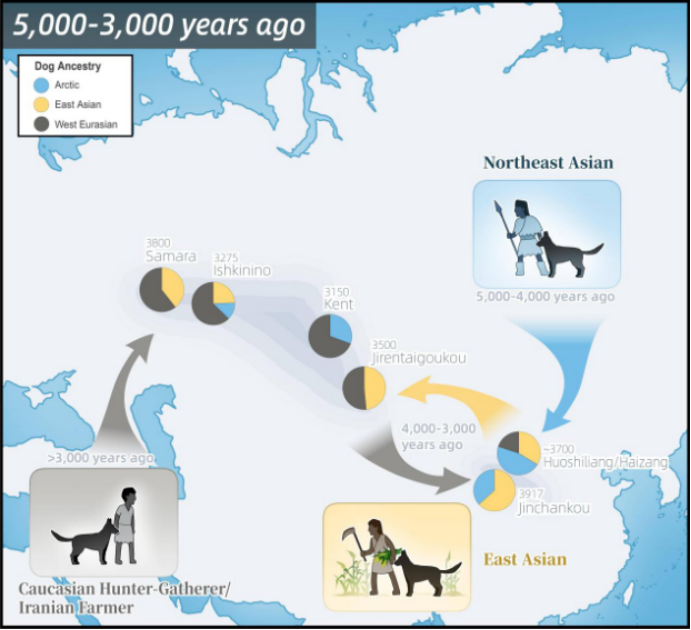
Newsroom
A new study published in Science on November 13 provides insights into the parallel migration patterns of dogs and humans across Eastern Eurasia during the Holocene. By analyzing 73 ancient dog genomes, including 17 newly sequenced samples, researchers demonstrated how canine ancestry shifts correlate with major human migrations over the past 10,000 years.
Led by Prof. WANG Guodong from the Kunming Institute of Zoology (KIZ) of the Chinese Academy of Sciences, the researchers examined genetic samples from archaeological sites spanning Siberia to Northwest China. Their analysis shows that dogs accompanied various human groups—including Ancient Paleo-Siberians, Eastern hunter-gatherers, and Steppe pastoralists—during key cultural transitions.
For the first time, the study uses ancient genomic evidence to discover that during the Holocene, multiple domestic dog populations across Eurasia—such as ancient Eurasian steppe dogs and ancient northern East Asian dogs—experienced several events of population admixture and replacement. When compared with ancient human genomic datasets, these canine admixture events were found to closely coincide with well-documented human population movements.
The findings suggest that dogs were not merely passive companions but integral components of human migratory packages. Their dispersal patterns reflect both shared journeys with human groups and independent exchanges between communities, particularly among hunter-gatherer societies in northern latitudes.
By reconstructing the historical human-animal relationships, this stusy establishes a foundational framework for understanding animal domestication dynamics and highlights the value of comparative ancient genomics. It also offers new perspectives on how domesticated species shaped, and were shaped by, human civilization patterns across millennia.

Schematic Diagram of the Co-dispersal of Domestic Dogs and Humans on the Eurasian (Image by KIZ)
